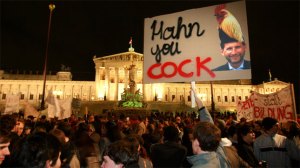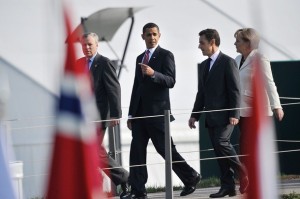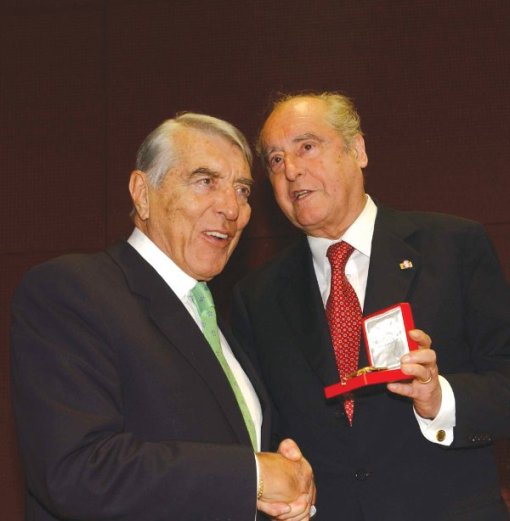Saturday, Jan. 17, was a historic moment for Austria’s Green Party. On the party congress, held in Klagenfurt, Eva Glawischnig, the nominated new party leader succeeding Alexander van der Bellen, received 97.4% of delegates’ votes (228 of 234), a truly remarkable result and the highest approval rate for any Green Party leader in its history.
Party officials hail this convincing result as a sign of unity of the party, severely shaken after its disappointing election result of Sept. 2008, where the Green Party dropped to the fifth place in parliament with 10.4%, unable to defend the third place (11 %) of 2006.
Glawischnig, in an attempt to differentiate herself from her more conservative-leaning predecessor van der Bellen, evidently plays the populism card on questions of the European Union in order to regain national attention.
“The Treaty of Lisbon is dead”, she declared in rhetoric similar to the far-right parties in an interview with Der Standard on Dec. 11, 2008. And she continued on the perspective that the accession negotiations with Turkey were successfully completed:
“Since the (European) Union failed at the Treaty of Lisbon, it has to ensure that its institutions work effectively with the new number of members. This is still a huge construction site. Under the current conditions, the EU is not receptive (to new members).”
This dramatic shift in European politics, announced first in a newspaper interview, inevitably provoked an open conflict with Johnannes Voggenhuber, longstanding MEP and as a member of the European Convention intimately acquainted with the EU constitutional process. Not surprisingly, Voggenhuber has been an adversary of the Constitutional Treaty and the succeeding Treaty of Lisbon.
Indeed, Glawischnig’s tactical shift on Europe was aimed at the removal of Voggenhuber as leading candidate for the elections to the European Parliament, to be held in June 2009. Following election result for the party at the last general elections, among young voters – a majority of voters aged 30 and younger supported the FPÖ with 44% – at the national election of September 2008, Glawischnig seems determined to win back this traditionally Green-leaning electoral segment at all costs.
Despite Glawischnig’s clumsy attempt of publicly undermining Voggenhuber, she did indeed succeed at the party congress on Saturday, Jan. 17: Ulrike Lunacek received the support of the majority of party delegates (54.7%) and consequently sent Voggenhuber into early retirement.
Nevertheless, Voggenhuber hit back by declaring his intention of a solidarity candidacy on 16th place. If he is supported by seven or more percent of the Green party electorate, he will be guaranteed the parliamentary seat.
Eva Glawischnig, the newly elected party leader has impressively demonstrated her assertiveness in personnel matters, yet the party has paid a high political price: Like the two far-right parties, sacrificing long-term political aims for short-term electoral gains. Soon we will know whether this was a wise strategy.
This is an excerpt, the full article was published in February 2009 in The Vienna Review.
 Photo: Students protesting in the streets of Vienna, Oct. 29. Photo Credit: Cremer / Der Standard.
Photo: Students protesting in the streets of Vienna, Oct. 29. Photo Credit: Cremer / Der Standard. Photo: from left to right, (Former) NATO General Secretary Jaap de Hoop Scheffer, U.S. President Barack Obama, French President Nicholas Sarkozy and Germany’s Chancellor Angela Merkel at the NATO Summit 2009. Photo Credit: Getty Images
Photo: from left to right, (Former) NATO General Secretary Jaap de Hoop Scheffer, U.S. President Barack Obama, French President Nicholas Sarkozy and Germany’s Chancellor Angela Merkel at the NATO Summit 2009. Photo Credit: Getty Images



